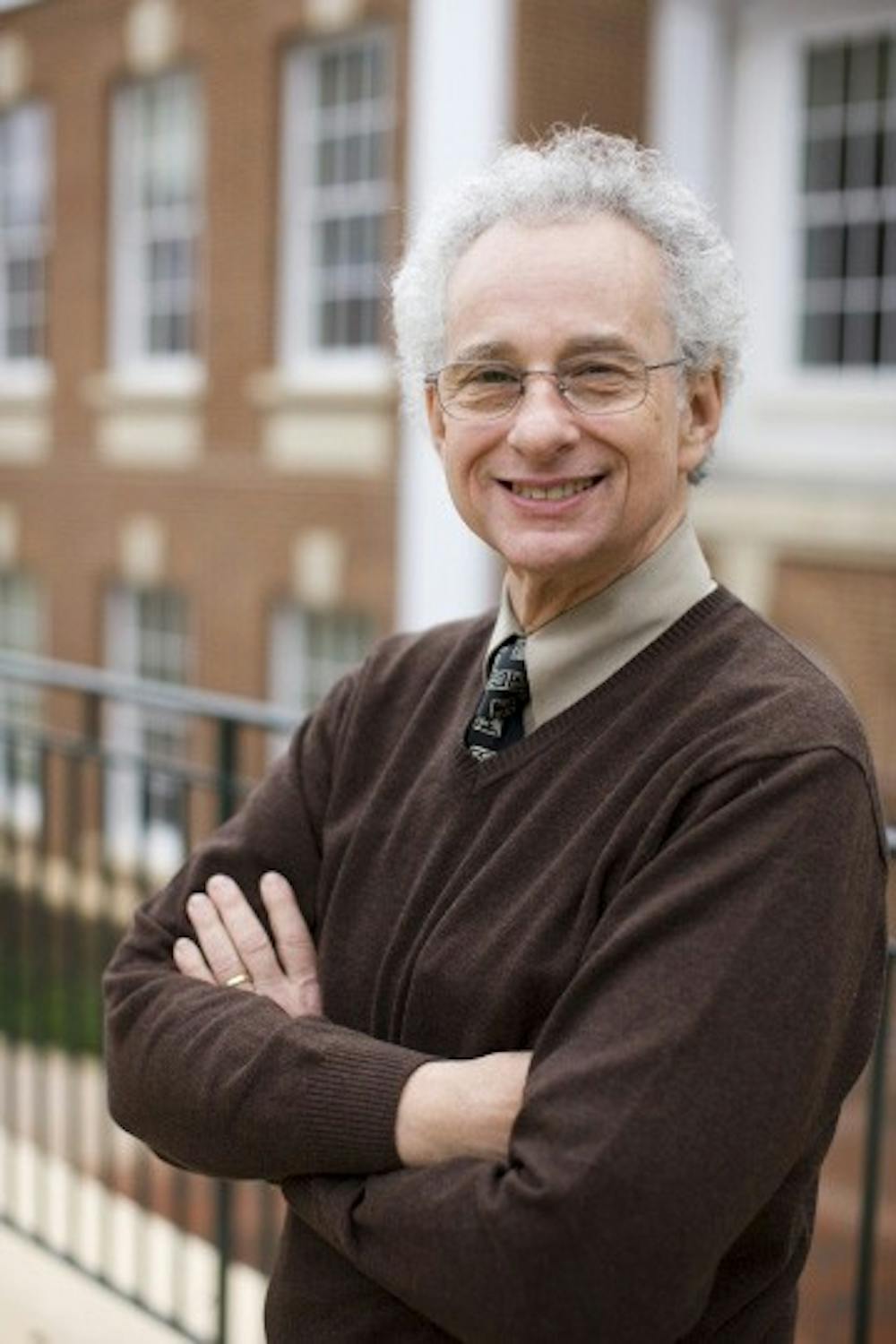History Prof. Melvyn P. Leffler and Darden Prof. Alexander B. Horniman received Thomas Jefferson Awards last Friday during the University’s Fall Convocation ceremony at John Paul Jones Arena. The award is the highest University honor available to faculty.
The Thomas Jefferson Award was established in 1955 to recognize excellence in service, and in 2009 the Alumni Board of Trustees of the U.Va. Endowment Fund created a second award for scholarship.
Leffler, who received the award for scholarship, joined the history department in 1986. He specializes in U.S. foreign relations during the Cold War. Leffler also served as dean of the College from 1997 to 2001.
“His time at the University has been marked not only by significant scholarly accomplishments, but by an unstinting devotion to his students, both graduate and undergraduate, and by a remarkable commitment to service of the academic community, at the University and beyond,” University President Teresa Sullivan said in a press release.
Leffler has received many awards for his work on the Cold War.
“Mr. Leffler is one of the most knowledgeable, imaginative and influential leaders in his field,” Sullivan said. “His scholarship has transformed our understanding of a vital period in American and world history. He is a deeply humane person, a scholar of the highest ethical standards and an advocate of rigor and integrity in all of his endeavors.”
Horniman, the Kilgallon Ohio Art Prof. of Business Administration in the Darden School, was recognized for his concentration on applied ethics and collaboration with members of the University across all schools and departments. He has been a faculty member for 47 years.
“Since his arrival on Grounds in 1967, Mr. Horniman has mentored students, executives, teachers and university leaders,” Sullivan said. “As founder and the first executive director of the Darden Olsson Center for Applied Ethics, his vision attracted a cadre of world-class scholars in business ethics.”
Horniman has also received multiple awards in his field and continues to teach and conduct research in the areas of strategy, leadership, individual and organizational change, high performance and the moral and ethical issues of leadership.
“Mr. Horniman embodies the excellence and ideals of this institution,” Sullivan said.
The Ceremony also included the inferring of Intermediate Honors upon 418 third-year undergraduate students who ranked in the top 20 percent of their class after four semesters at the University.







